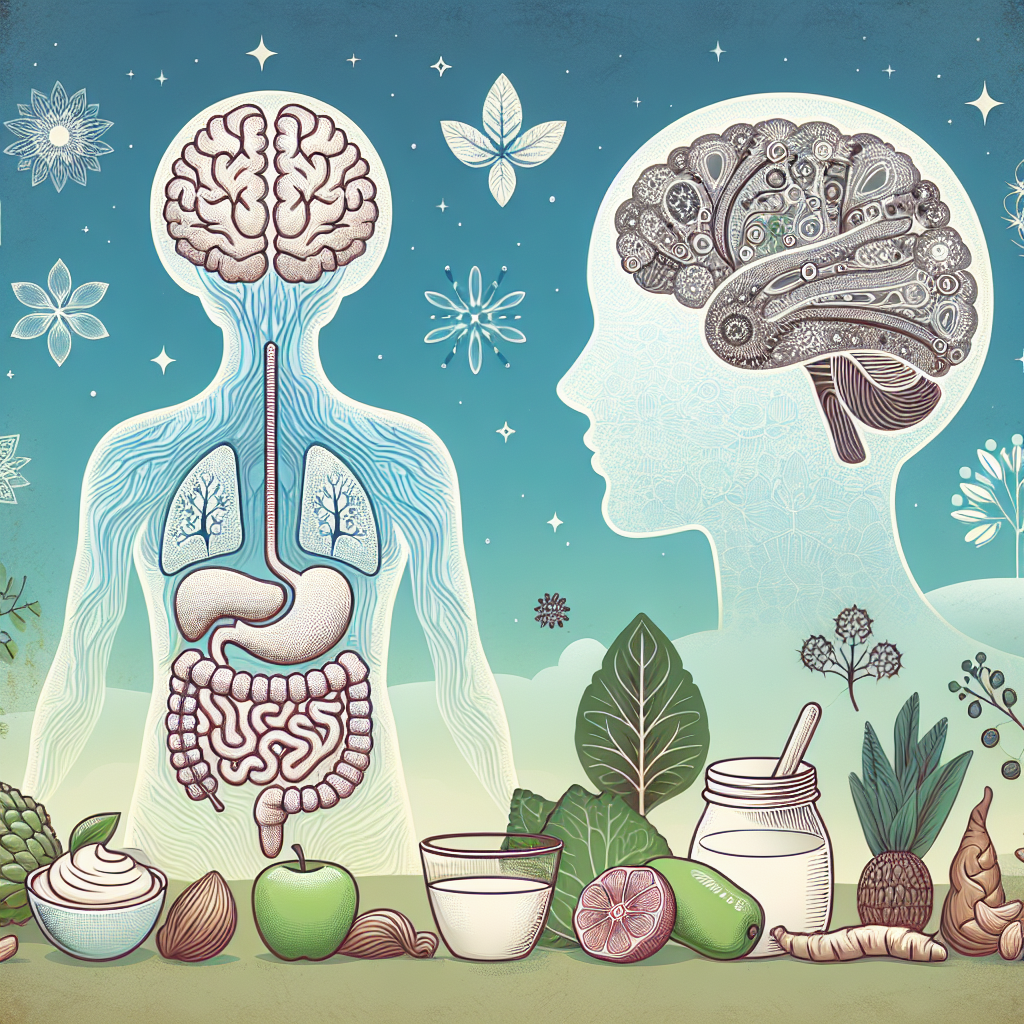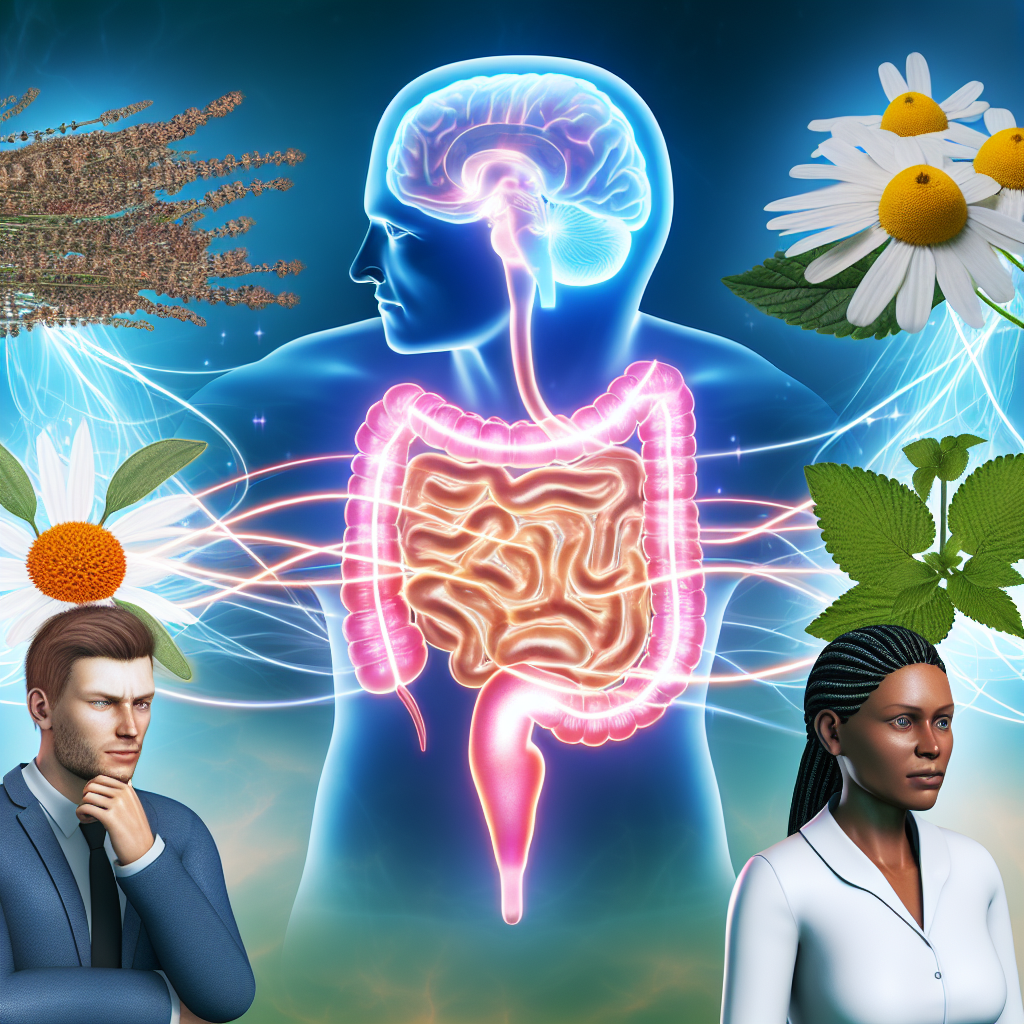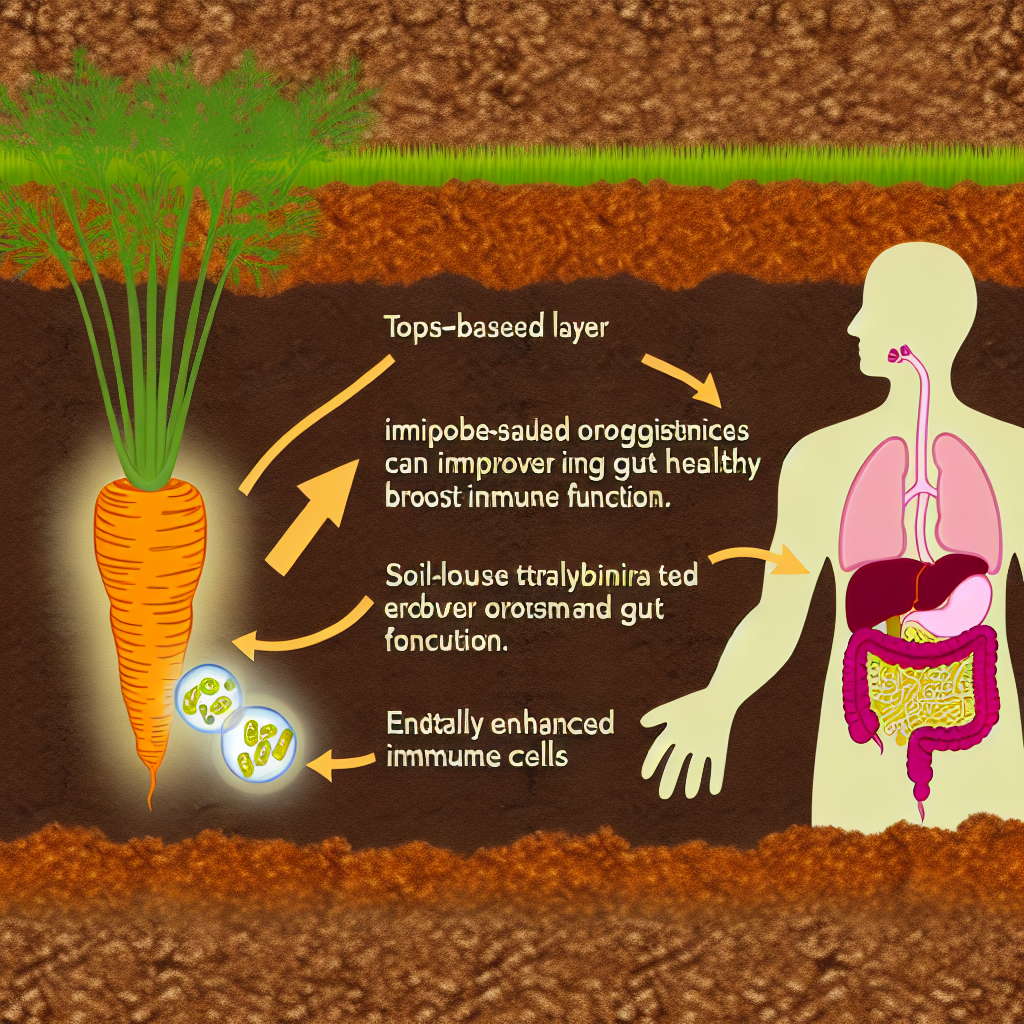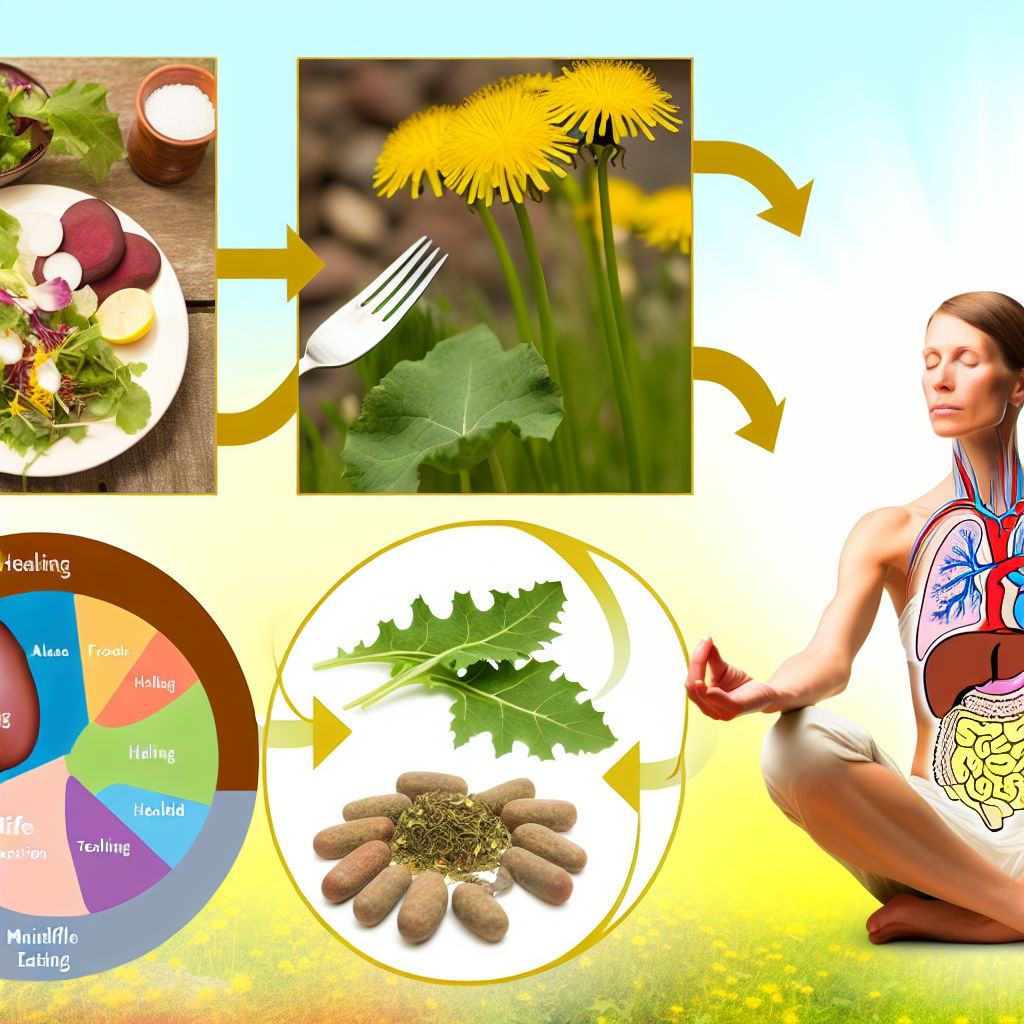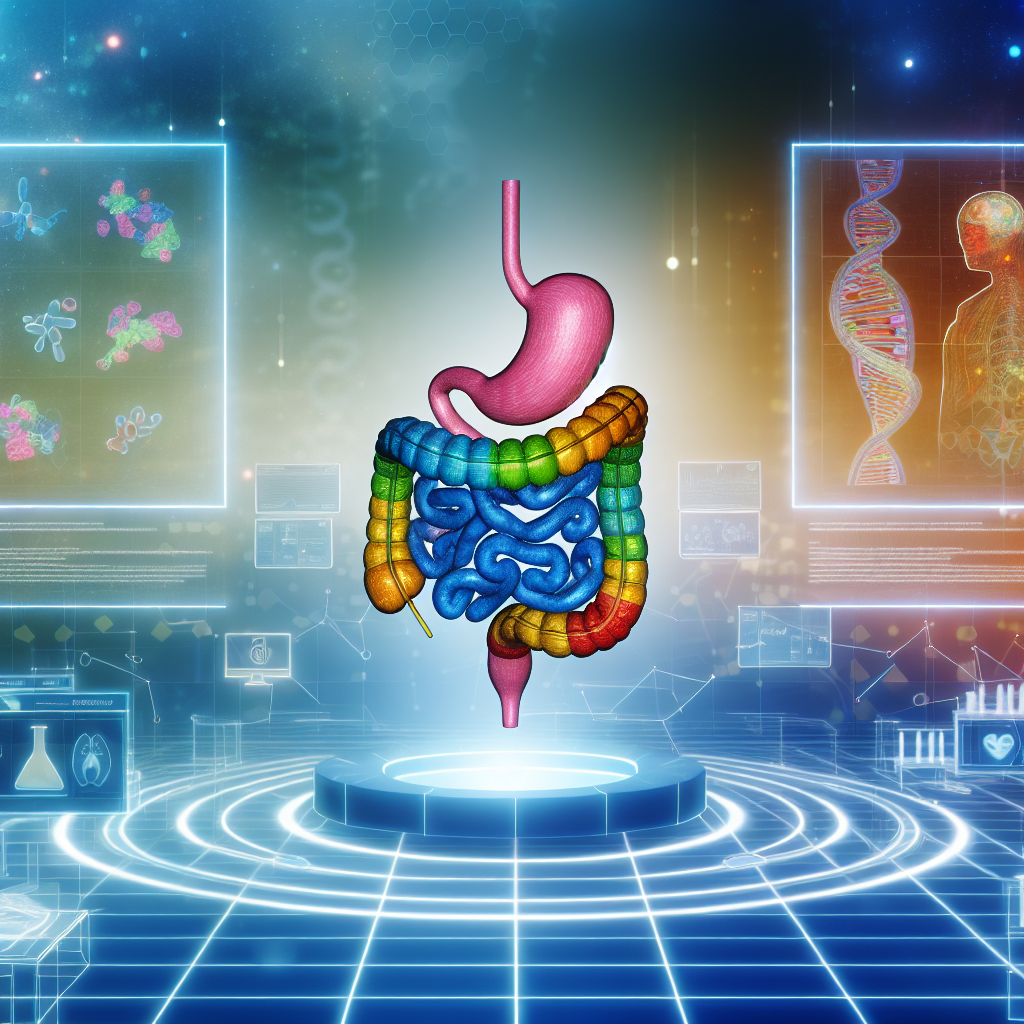Gut-Brain Connection: Natural Anxiety Relief Through Digestion
The gut-brain axis is a complex communication system that links the central nervous system with the gastrointestinal system. Gut microbiome, a community of trillions of microorganisms, plays a crucial role in regulating digestion, immunity, and mood through neurotransmitter production. Imbalances in the gut microbiome can contribute to stress and anxiety. Probiotics, prebiotics, and herbal remedies like ashwagandha and chamomile can help alleviate anxiety by regulating inflammation, neurotransmitter production, and overall gut health. Incorporating mindfulness and stress-management techniques can further enhance the gut-brain connection and promote mental well-being.
Unlocking the Gut-Brain Axis: The Science Behind Mental Health and Digestion
The gut-brain axis allows the gut and brain to communicate, with the gut microbiome playing a crucial role. A healthy gut microbiome helps regulate digestion, immunity, and mood through neurotransmitter production. Dysbiosis, or imbalances in the gut microbiome, can disrupt this production and contribute to stress and anxiety.
The Microbial Connection: How Gut Bacteria Influence Your Mood
Bifidobacterium and Lactobacillus bacteria have been linked to anxiety relief. Probiotics, or “psychobiotics,” can help alleviate generalized anxiety by regulating inflammation, neurotransmitter production, and the vagus nerve activity.
Feeding the Mind: Why Fiber and Prebiotics Matter
Dietary fiber and prebiotics are essential for gut health. Prebiotic-rich foods, like bananas and garlic, feed beneficial gut bacteria and promote the production of short-chain fatty acids, which have a positive impact on mood and emotional resilience.
Nature’s Anxiety Busters: The Power of Herbal Remedies
Adaptogens like ashwagandha and rhodiola rosea can help regulate cortisol levels, the body’s primary stress hormone. Peppermint and chamomile offer dual benefits for gut and mental health.
Mindfulness for the Gut: Managing Stress for Digestive Health
Stress can exacerbate gut issues, creating a vicious cycle between mood and digestion. Mindfulness and meditation can calm both the brain and the gut, helping to alleviate symptoms of conditions like irritable bowel syndrome (IBS).
Actionable Tips: How to Build Your Gut-Friendly, Stress-Reducing Routine
Incorporate probiotics, prebiotics, herbal remedies, and mindfulness practices to nurture your gut microbiome and promote mental well-being.
Conclusion: A Balanced Gut for a Balanced Mind
Your mental health and digestion are deeply intertwined, making gut health an essential component of emotional well-being. By nourishing your gut microbiome, you can reduce anxiety and improve mental resilience naturally.
Summary:
Your mental health and digestion are closely linked, with the gut microbiome playing a crucial role in regulating mood, immunity, and overall well-being. By incorporating probiotics, prebiotics, herbal remedies, and mindfulness practices, you can nurture your gut health and naturally alleviate anxiety and stress.
References:
1. Cryan, J. F., & Dinan, T. G. “Mind-altering microorganisms: the impact of the gut microbiota on brain and behaviour.” Nature Reviews Neuroscience.
2. Forsythe, P., Kunze, W., & Bienenstock, J. “Mood and gut feelings.” Brain, Behavior, and Immunity.
3. Kiecolt-Glaser, J. K., et al. “Stress and eating: The gut-brain axis.” Nature Reviews Neuroscience.
4. Chalmers, J. A., et al. “Mind-body approaches to stress reduction.” PLOS ONE.

Dominic E. is a passionate filmmaker navigating the exciting intersection of art and science. By day, he delves into the complexities of the human body as a full-time medical writer, meticulously translating intricate medical concepts into accessible and engaging narratives. By night, he explores the boundless realm of cinematic storytelling, crafting narratives that evoke emotion and challenge perspectives.
Film Student and Full-time Medical Writer for ContentVendor.com
